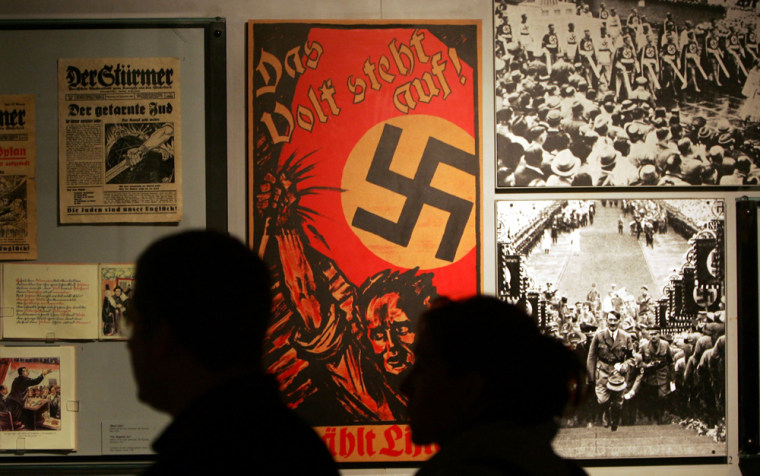The U.N. General Assembly commemorated the 60th anniversary of the liberation of the Nazi death camps with a special session Monday, and survivor Elie Wiesel and world leaders confronted a question that has long haunted the United Nations: whether the world body has the will to stop future genocide.
The commemoration also was meant to eradicate the notion that the U.N. General Assembly is anti-Semitic, an accusation frequently made by Israel.
But there were signs of division and clear evidence that much of the Arab world was not participating. The General Assembly auditorium was less than half full even for the start of the commemoration, while just one Middle East country — Jordan — was scheduled to deliver a speech commemorating the liberation of the camps.
Speakers at the General Assembly remembered the 6 million Jews who died in the Holocaust and how the United Nations itself was founded in response to the tragedy to prevent such acts from happening again.
Wiesel: Tragedies were preventable
“The Jewish witness that I am speaks of my people’s suffering as a warning,” Wiesel said. “He sounds the alarm to prevent these tragedies from being done to others. And yes, I am convinced if the world had listened to those of us who tried to speak we may have prevented Darfur, Cambodia, Bosnia, and naturally Rwanda.”
The event was one of several United Nations commemorations Monday beginning a week of events worldwide marking the anniversary of the liberation of the camps.
In Vienna, Patrick Villemur, France’s representative to U.N. organizations based in the Austrian capital, reminded about 200 officials and employees gathered in the rotunda of the U.N. complex overlooking the Danube River that the United Nations was founded “as the world was awakening to the full horror of the camps.”
The United States had requested the commemorative session at the General Assembly on Jan. 24, three days before a similar event in the former Auschwitz death camp in Poland to mark its liberation by Soviet troops Jan. 27, 1945.
Warnings against anti-Semitism
Between 1 million and 1.5 million prisoners — most of them Jews — perished in gas chambers or died of starvation and disease at Auschwitz. Overall, 6 million Jews were killed in the Holocaust.
Speakers in New York, including Israeli Foreign Minister Silvan Shalom and Russia’s commissioner for human rights, Vladimir Lukin, warned against a rise in anti-Semitism around the world.
Shalom pointed to the strength of movements denying the Holocaust, asking if there was anything worse than the destruction of an entire race.
“There is something worse: to do all this and then deny, to do all this and then take from the victims and their children and grandchildren the legitimacy of their grief,” he said.
Sir Brian Urquhart, the retired U.N. undersecretary general who was among those soldiers who freed the death camps, said the world must not forget the Holocaust because it revealed what horrors humans can inflict and that they may do again.
“This commemoration serves to recall what human beings driven by hatred or fear or some perverse ideology are, against all rational belief, still capable of doing to each other,” he said.
